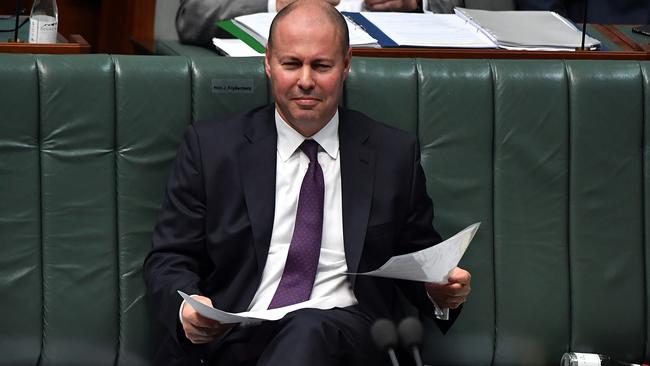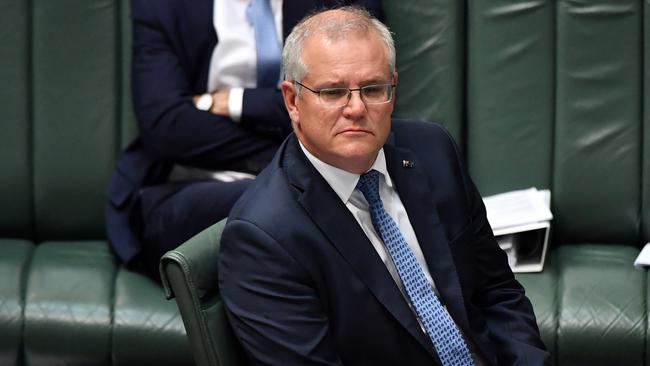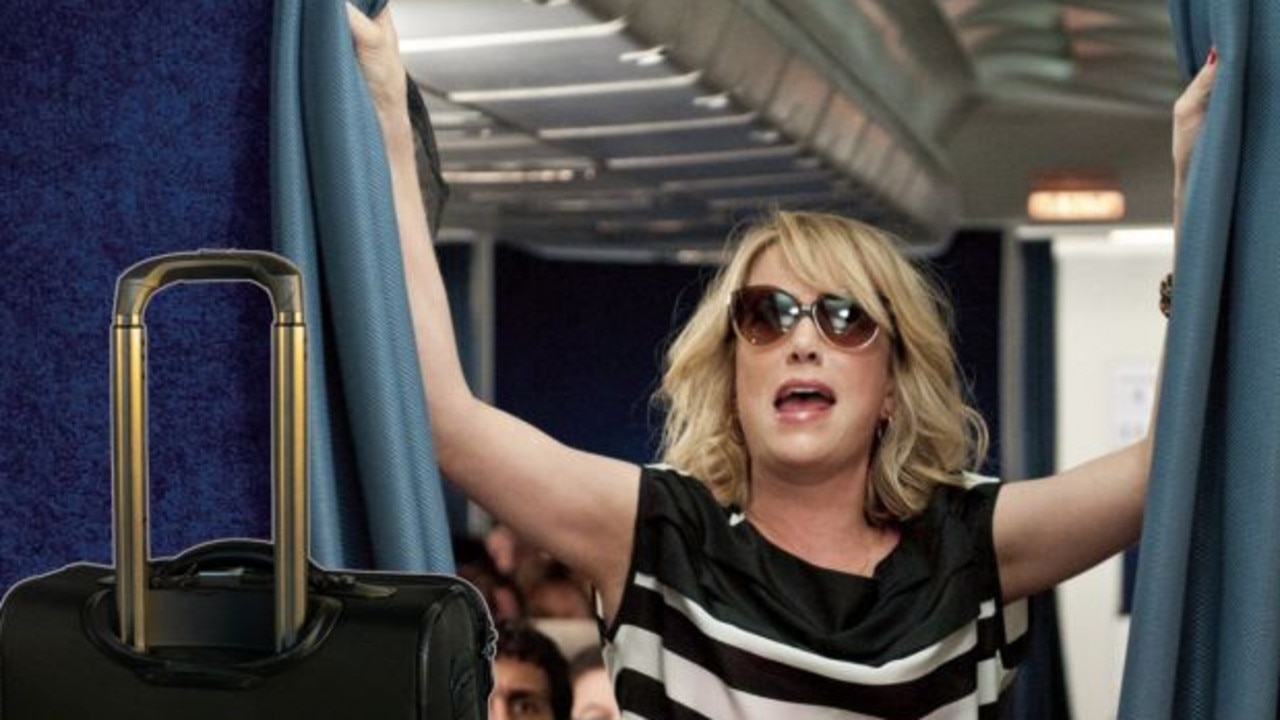Vikki Campion: Real support is still missing in federal budget
Treasurer Josh Frydenberg handed down the latest budget but in areas like domestic violence, aged care and the NDIS, more still needs to be done, Vikki Campion writes.

Opinion
Don't miss out on the headlines from Opinion. Followed categories will be added to My News.
If Australian sheep are abused overseas, there is an uproar – but the Family Court is exporting Australian women and children with no regards to their safety.
As this budget injects $3 billion into a women’s safety package, the Australian taxpayer is paying the legal fees of foreign men fighting their estranged partners in our courts to take babies from Australia to other nations.
One such domestic violence victim was forced to give birth overseas after an assault and later flee home to Australia in September last year with her infant daughter.
She is now being pursued under The Hague Convention which enforces this anomaly.
In Australia, she is a professional, a homeowner, a loving mother.
But under international law she is a fugitive who, in escaping her violent husband, “kidnapped” her daughter and faces having her breastfed baby being sent back to their old war-zone.

We have fallen into the trap of believing we can buy our way out of hell, that we can now throw $1500 cash grants at women fleeing violence while at the same time their rights are being usurped by international agreements.
Without urgent reform, often unpopular for governments to undertake, we risk repeating the bloat of the National Disability Insurance Scheme with both aged care and domestic violence.
The rort-prone NDIS, designed to help people living with physical disabilities, now slurps up $122 billion a year and Tuesday’s budget celebrated the record funding when it should be viewed with dismay, as the rates it sets ($55 an hour for a cleaner) are beyond what the average person can afford, and ends up costing the very demographic it is supposed to help.
For example, a blind man near Goondiwindi, who is not fully covered by the NDIS and needs a driver to help him do his job, cannot find anybody for under $55 an hour, because that’s the outrageous NDIS rate.

Like the NDIS, The Hague Convention which is sending Australian daughters back to be abused by the sons of other nations, must be reformed immediately.
If this mother loses, which her solicitor says is a “very real possibility”, her baby will be sent away from her primary carer to a father she has barely known.
Overseas, the mother was isolated, kept in an attic, with no access to money.
In Australia, her bright-eyed daughter has a huge baby-toothed smile, unaware she could soon be sent back to the abuser she just escaped.
Our older Australians should be able to stay at home as well but there seems to be a lot of administration costs in the budget’s $6.5 billion for home aged care, with “informal carers” set to get $798.3 million from 2022.
With extended family, we assist in the care of a 97-year-old in a remote area, none of whom have ever requested a government incentive to do it.
Why do we suddenly require a Centrelink goodie bag to make hot meals, organise medical care and change the bed for someone who spent their youth sacrificing their body to fight our wars, or caring for our loved ones?
We are handing our personal responsibility to other taxpayers, and once we start paying sons and daughters to start caring for their own mothers and fathers, we will never stop — not without the government of the day bleeding votes.
Aged care desperately needs reform.

The $17.7 billion spend in aged care dwarfs the infrastructure project spend in Victoria ($3 billion), NSW ($3.3 billion), ACT ($167.3 million), Queensland ($1.6 billion), Tasmania ($322.6 million), Western Australia ($1.3 billion), South Australia ($3.2 billion), the Northern Territory ($323.9 million) and their total road safety projects ($1.9 billion) all put together.
More than a third of the budget, 35.6 per cent, is going on social security and welfare — that’s more than the public service, defence, education and health combined, and paid for mostly by your income tax, super tax, FBT, GST and company and resources tax.
Lacy lifestyle thought-bubbles such as the $17m to “inspire girls to play sport” and $1.5 million for a program “to reduce the use of alcohol” would be best left to social media wellness coaches rather than the federal government.
There is confusion among the backbench, tasked with fighting for their seats in the election, why the budget has been so generous with social programs, and so cruel to desperately needed and promised job-creating infrastructure: New roads, a gas plant in the Hunter, a coal-fired power station in North Queensland and a dam near Mackay.
Only a quarter of government expenditure is authorised by the annual appropriation bills that we know colloquially as “The Budget” — the remaining 75 per cent come through the Parliament as bills for specific programs, which are often vague, uncapped in funds
and duration.
Many joked on Tuesday that this budget had something for every family – including their great-grandchildren who will be paying back the $1 trillion debt.
Some of the excesses in this budget are a waste, some are necessary, and some fit firmly under personal — not government – responsibility.
There will be fewer ribbon-cuttings on tangible projects and much longer lines at Centrelink.





